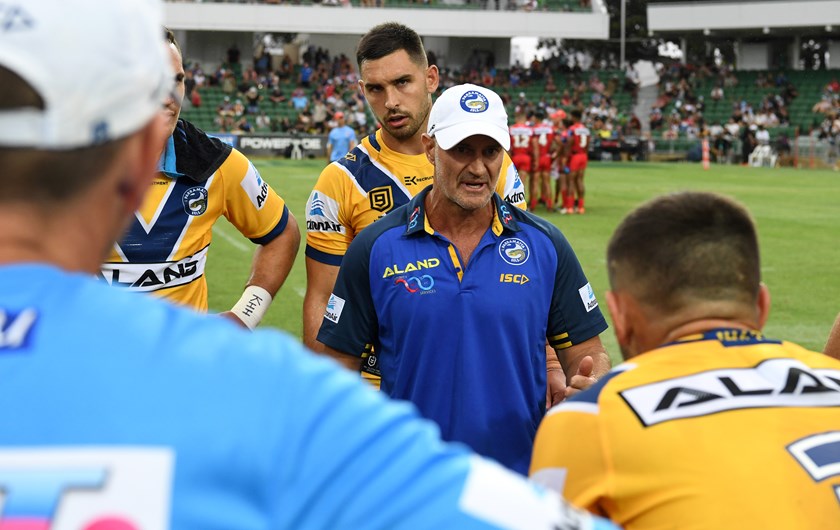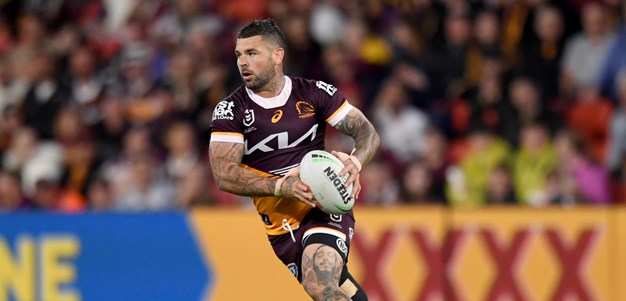
Rugby League Coaches Association interim CEO Neil Henry has called for measures to ensure greater stability in the coaching ranks after Brisbane's Anthony Seibold became the latest casualty in an occupation in which one in four coaches get the sack each season.
Seibold's departure, which will be confirmed on Wednesday, makes him the fifth head coach to either be sacked or resign this season after Stephen Kearney (Warriors), Paul Green (Cowboys), Dean Pay (Bulldogs) and Paul McGregor (Dragons).
While the number of clubs changing coaches has dominated headlines since the NRL competition resumed on May 28, it is only slightly above average for the past decade.
With 41 coaches either forced out or leaving their club since 2011, hundreds of support staff have also lost their jobs.
"There are over 40 coaches now that have either walked from their contract early or been sacked in the last 10 years," said Henry, who coached Canberra, North Queensland and Gold Coast.
"If Seibs does what everyone expects him to do that will be five coaches this season but the average for the last 10 years has been four so we are still sitting at around 25 per cent.
"That is a very high turnover of head coaches and we have got to look at the reasons why and governance, and decision-making around support staff, and experience and all those sorts of things because every time a head coach moves on there is a disruption."
What next for the Broncos?
Canterbury recently told six members of the club's football department, including acting coach Steve Georgallis, that their services were not required for next season as incoming coach Trent Barrett wants to bring in his own support staff.
Henry said it was a common practice when clubs appointed a new coach and meant that many more jobs had been lost in the coaching industry, with assistant coaches often getting little more than four weeks notice of termination.
The only positive from the news at Belmore was that staff had time to look for jobs with other clubs next season.
"Very rarely does a head coach come in and maintain all the staff that were there," Henry said. "There is a lot of collateral damage under a head coach in an organisation so from a Coaches Association perspective there are ramifications beyond the head coach.
"Most head coaches understand it is a volatile industry and they are usually well paid but the future of assistant coaches or development coaches often depends on how your head coach is going.
"In a year that has been that disruptive due to COVID, it has gone the opposite to how most people thought it would go."
The financial impact caused by COVID-19 is expected to see clubs scale back the number of coaching staff next season, while there have been 60 jobs lost across the 20 AFL franchises.
The additional cost of pay-outs to departing coaches will reduce the amount their replacements can spend under the NRL's football department salary cap, while budgets in other areas of the club are likely to be reduced to cover termination settlements.
"Coaches can overcome difficult seasons," Henry said. "Brad Arthur is a classic example. Parramatta stuck with him and he has come out the other side. They had faith in him and they were able to back that up with some leadership and some introspection to change a few things up.

"Clubs can do that or they can just continue with the coach as a scapegoat and another one comes in, then he is gone, and if nothing changes you are probably going to get the same result.
"That doesn't mean that there aren't times where the tenure is not just viable but the game needs a bit of stability around coaching because it is a disruption for the players, the fans, the support staff, the organisation."
Seibold's record of just three wins in the opening 15 rounds this season made his job untenable at the Broncos but he has had to cope with vilification on social media and a relentless campaign for him to quit.
Henry said he had reached out to Seibold and the recently formed Coaches Association offered support to all members but that clubs also had a responsibility to check on the welfare of departing staff.
"Coaching is his job but then you've got mental health and family considerations, and the ramifications on them, so there is a real human element there that is getting hammered at the moment," Henry said.
"That is what is disappointing and we are seeing it more and more, whether it is racial vilification of Indigenous players like Brent Naden or Latrell Mitchell, and in other areas of our game as well. Ryan Papenhuazen made a statement recently, too.
"I know the game has made a statement from [ARLC chairman] Peter V'landys and [interim NRL CEO] Andrew Abdo to say that if we find these people they will be treated with life-time bans and I applaud that because you need to make a strong stand."
Is it time to get tougher on online abuse?
Coaching moves since 2011
2020
Anthony Seibold (Broncos)
Paul McGregor (Dragons)
Paul Green (Cowboys)
Dean Pay (Bulldogs)
Stephen Kearney (Warriors)
2019
Nathan Brown (Knights)
Garth Brennan (Titans)
2018
Trent Barrett (Sea Eagles)
Shane Flanagan (Sharks)
Anthony Griffin (Panthers)
Wayne Bennett (Broncos)
Anthony Seibold (Rabbitohs)
Ivan Cleary (Tigers)
2017
Michael Maguire (Rabbitohs)
Des Hasler (Bulldogs)
Neil Henry (Titans)
Jason Taylor (Tigers)
2016
Andrew McFadden (Warriors)
2015
Geoff Toovey (Sea Eagles)
Ivan Cleary (Panthers)
Rick Stone (Knights)
2014
Mick Potter (Tigers)
John Cartwright (Titans)
Wayne Bennett (Knights)
Anthony Griffin (Broncos)
Peter Sharp (Sharks)
Steve Price (Dragons)
Matthew Elliott (Warriors)
2013
David Furner (Raiders)
Ricky Stuart (Eels)
Neil Henry (Cowboys)
Shane Flanagan (Sharks)
2012
Brian Smith (Roosters)
Tim Sheens (Tigers)
Brian McClennan (Warriors)
Stephen Kearney (Eels)
2011
Wayne Bennett (Dragons)
John Lang (Rabbitohs)
Kevin Moore (Bulldogs)
Matthew Elliott (Panthers)
Rick Stone (Knights)



